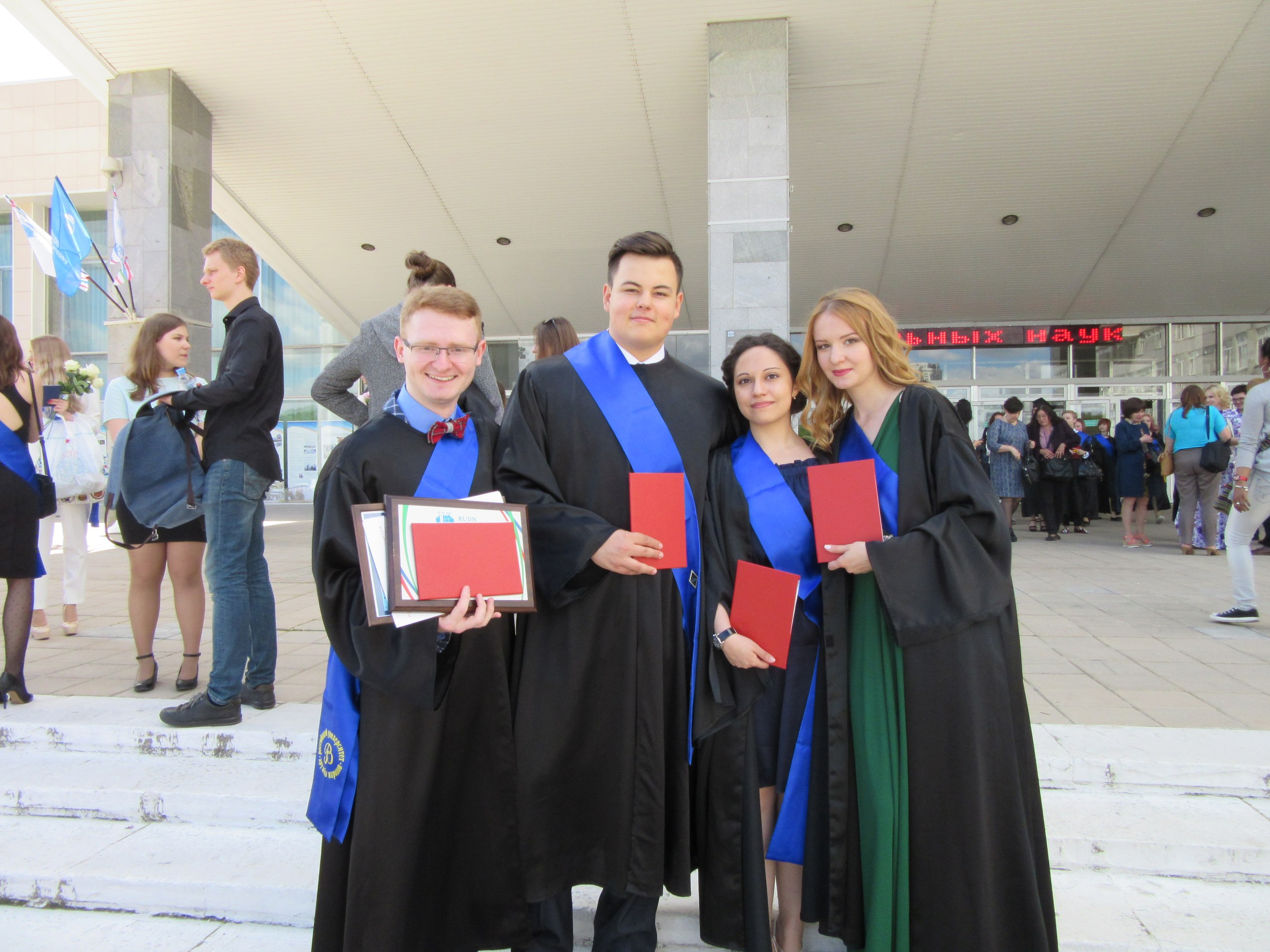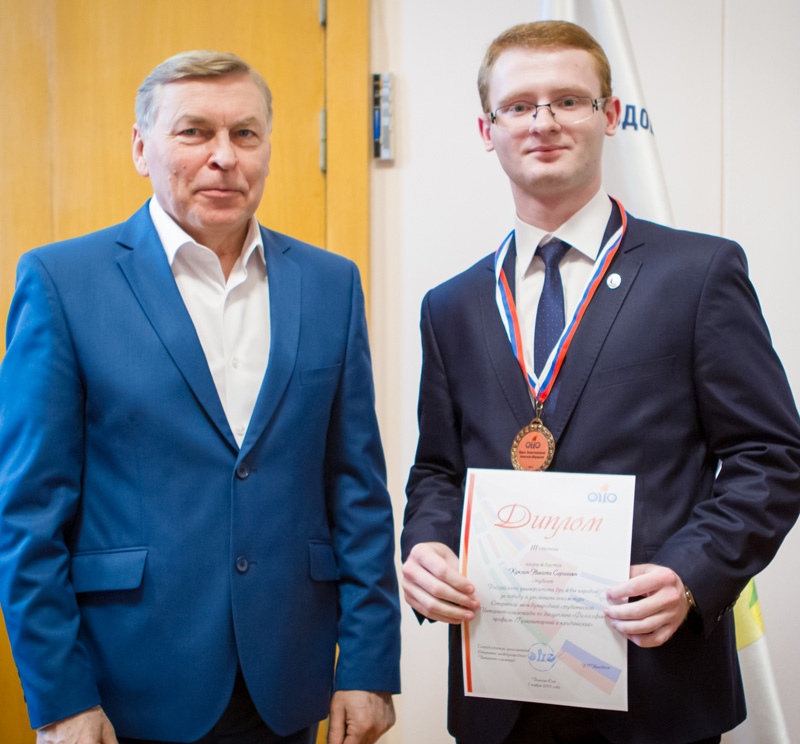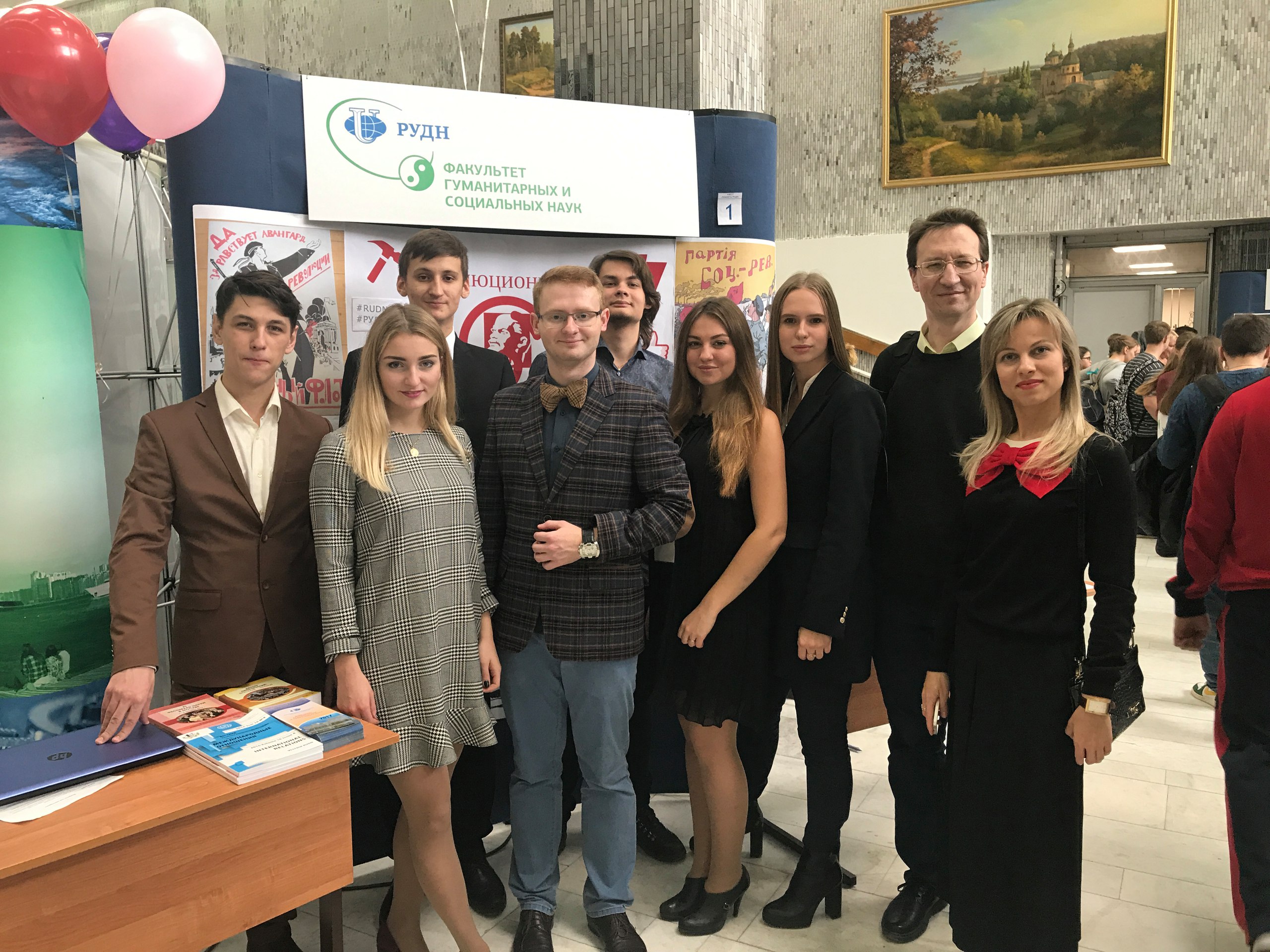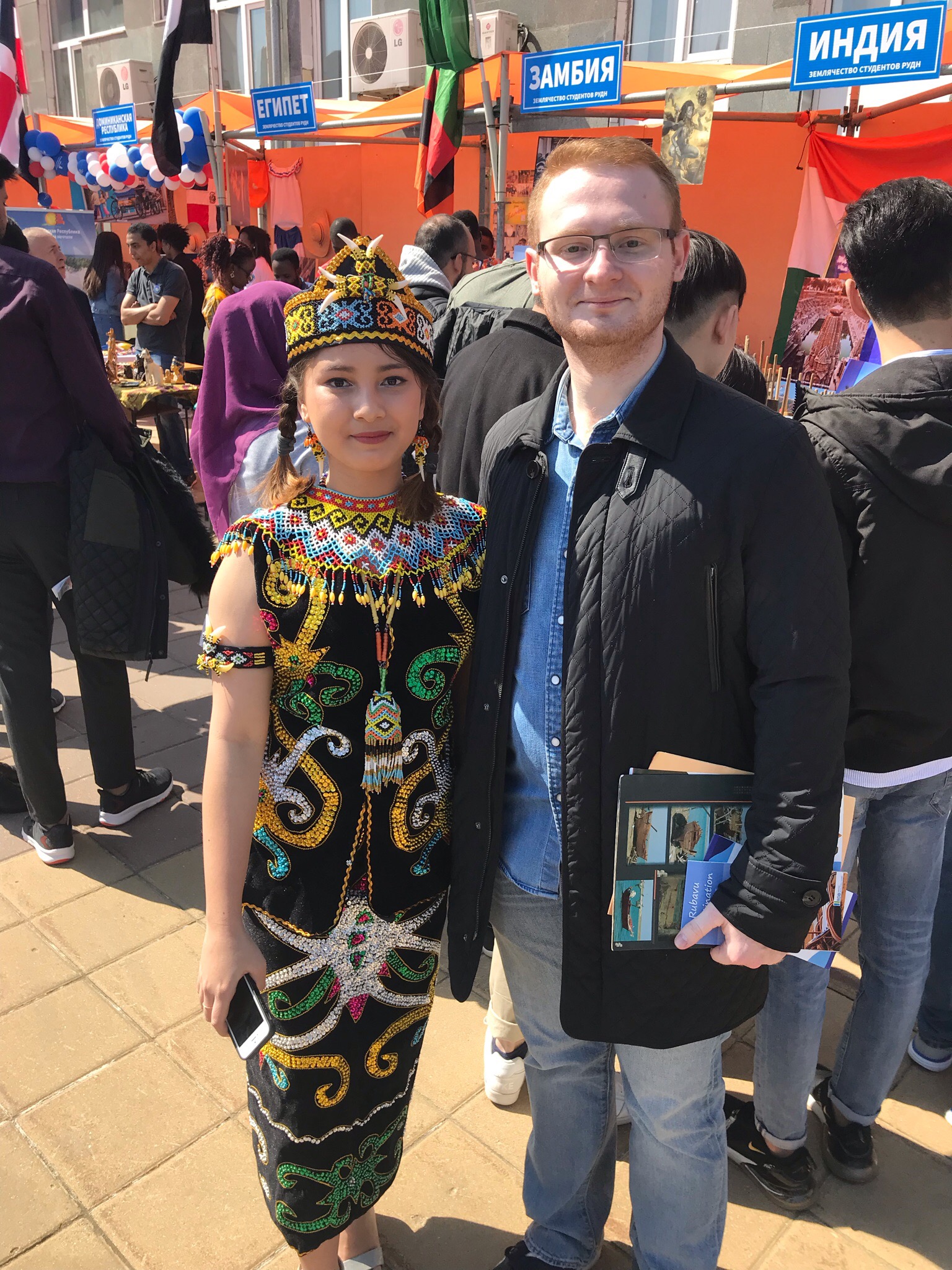«RUDN University is academic freedom, which is very important for research», - Nikita Kuklin, graduate of RUDN University
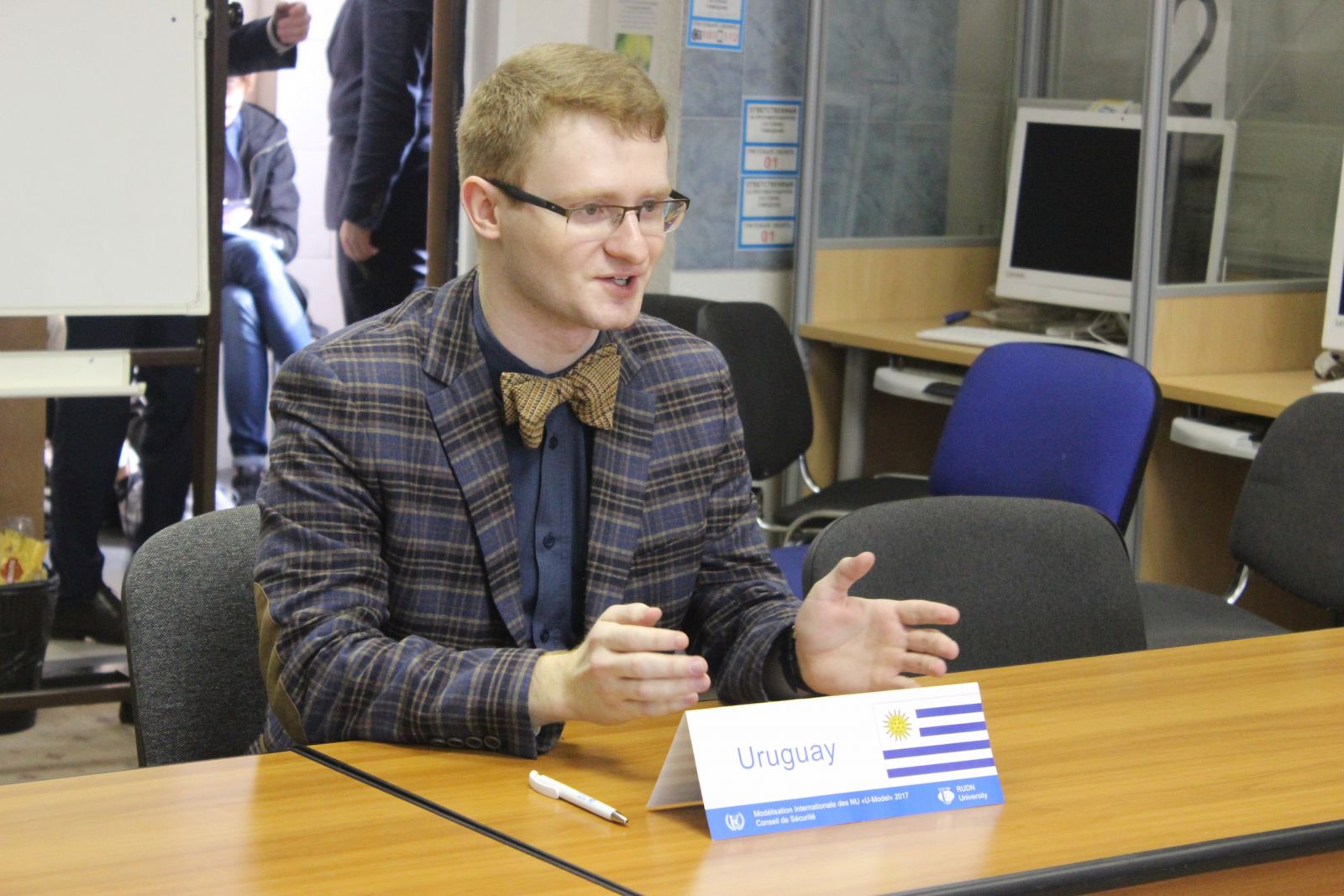 Tell me, what did you dream of becoming in childhood?
Tell me, what did you dream of becoming in childhood?
I dreamed of becoming a writer, a poet. From childhood, I liked to come up with scripts for my games, think over some legends, biographies: this commander is brave, he has a mission, he goes to fulfill it, he has a team. It was boring to play without a story; I wanted a context, a big picture. I was interested in history from a very young age. My parents are teachers: dad - history and law, mom - pedagogy, chemistry and biology, so I had a lot of books on these specialties. I liked to read about Darwin's theory, and about the biological characteristics of plants, and about the history of different countries. I always believed that the main thing is the development of a person, you don’t need to focus on one thing, a person may be interested in a wide range of areas of knowledge.
How did you decide in favor of international relations?
Since the 6th grade, I seriously became interested in history, purposefully prepared and entered as a prize-winner of the Lomonosov History Olympiad at RUDN University. Back in school, I understood what diplomacy and international relations are in the framework of the historical process. I didn’t know about the specialty “International Relations», so it was a discovery for me - you can combine the study of foreign languages, understanding of global international processes and history. In addition, the international environment of the university is conducive to international communications. I understood that I did not want to be just a historian, to sit in archives with papers, to analyze the past. History is the classic foundation that every person must have in order to understand the society in which we live from the point of view of the past, present and future. International relations are a popular and interesting modern specialty that allows a person to develop comprehensively.
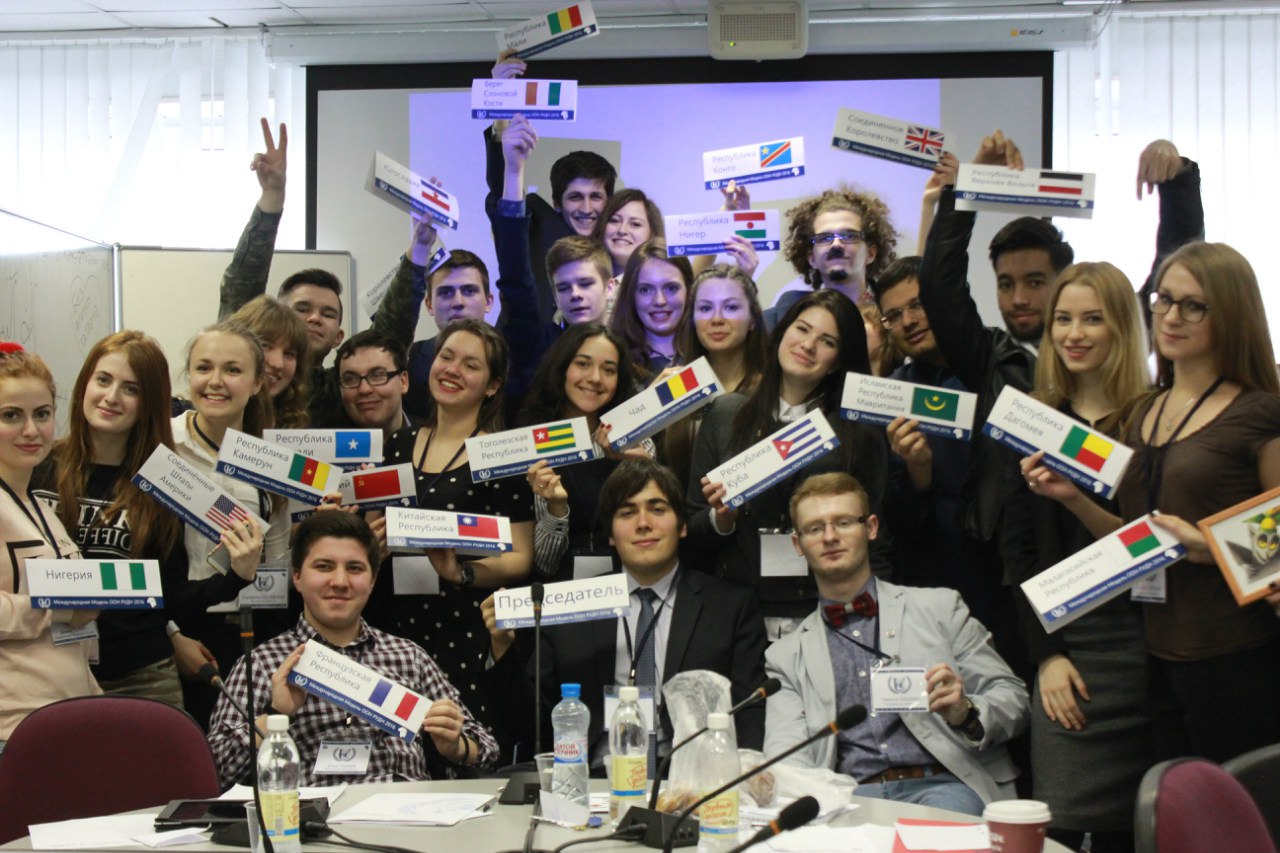 Your student life is closely connected with scientific activity. How did this happen?
Your student life is closely connected with scientific activity. How did this happen?
I came to the Scientific Student Society (NSO) in my first year. Senior students organized a discussion club where we discussed politics. And already in my second year I became the head of the NSO at the department. We held simulation games, this tradition was before us. The imitation game is a full-fledged diplomatic game for the whole day, when participants represent certain countries and defend their positions from the point of view of their country's policy. This allows future specialists in international relations to understand how to evaluate a particular problem from the point of view of various countries. The practice expanded, my colleagues and I were invited to the Diplomatic Academy of the Ministry of Foreign Affairs of the Russian Federation, where the UN model was just beginning to develop. Then we “brought» the model to our university, and in 2016 we carried out the first UN RUDN University model at the Faculty of Humanities and Social Sciences. Several committees in foreign languages were represented - English, French, in subsequent years, Chinese, Arabic, now - the whole range of official languages of the UN. Over time, the model attracted people from different cities, universities. The project is really large-scale - about 200-300 people annually.
Another important trend that we launched in the NSO, but it has been developed only now, is the writing of full-fledged scientific collections by student teams. First, we launched expert clubs, departments in the regions, where students conducted research with older students. Then we started writing articles. Current NSO participants have prepared an expert compilation for the Russian Ministry of Foreign Affairs.
So we implement the scientific trend in two directions - gaming and publishing.
Is it a love of scripting and writing games?
Very often, society dictates to us that from a certain age we cannot play. But American psychologist Eric Burn wrote that we always play. The UN model is no exception.
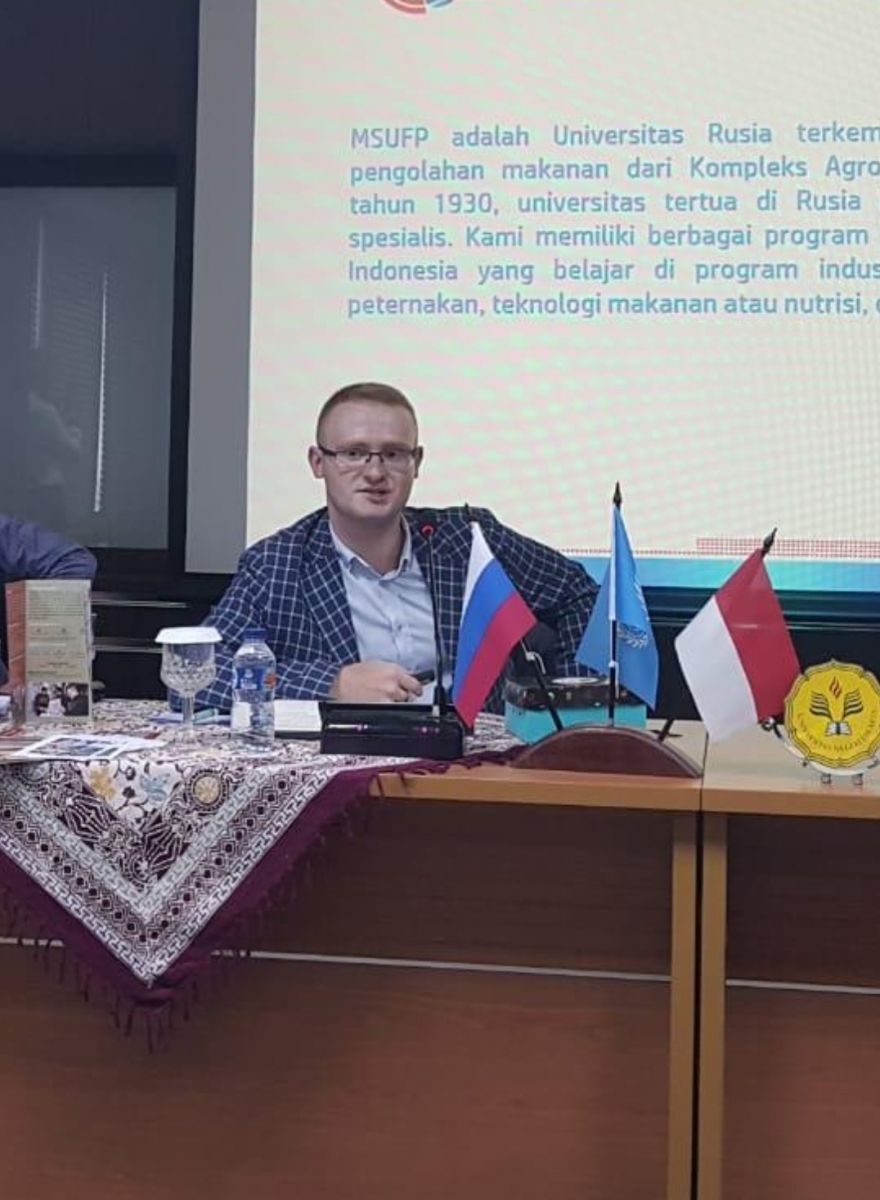 Some consider science to be boring and a waste of time. Why do we need research, publications?
Some consider science to be boring and a waste of time. Why do we need research, publications?
I will be somewhat pragmatic, but at least it is profitable and prestigious. If we look at the modern market, we will see that this is a full-fledged expert field, where state authorities, business and many other active participants in social processes turn to assess the particular event or phenomenon - this applies to the humanities. There are many expert, analytical centers that are involved in the analysis of foreign policy and its research. How to improve relations with this or that country? An expert opinion is needed, a report that helps to work out the next strategic steps. Specialists who understand society and can make predictions regarding the development of this society are now in great demand.
Publication activity forms the scientific image of a professional. These are people who go beyond the scope of performers and standard work algorithms - they are able to analyze processes and improve them, think through a global structure. It is impossible to educate such specialists without a scientific consciousness, an analytical warehouse, a methodological base and an interdisciplinary approach.
Let's talk about foreign languages. How many languages do you speak? How to choose which to learn?
I have English and French workers, so to speak operational, Indonesian - at a good level, I studied it myself. We have few centers where you can learn Indonesian, but there is a language environment - our students from Indonesia helped me. I liked this direction very much, besides, I always understood that many know English and French. How many people know Indonesian? If we take those people whom I know and roughly count, given the ratio of graduates from eastern faculties, we get several thousand for the whole country. And most of them do not go to science - more often to trade, business or spiritual practices. So the circle of experts involved in international relations is really narrow.
Choosing a language - a strategic move or internal interest?
Together. I always wondered what was happening on the other side. European and Western civilizations are not new to me; I have known them since childhood through literature, history, and art. And Southeast Asia remained a mystery. We have stereotypical ideas, but there is no deep understanding of who lives there and what happens there. Therefore, it became interesting for me to analyze their foreign policy and culture. Then I found out that traditions, psychology, and mentality for the residents of the region are decisive: foreign policy is more regulated by the internal environment of the country, and not by any rules of the system of international relations. That is why I am interested in studying Indonesia. Now this country plays a huge role, the foundations of its foreign policy are unique and interesting. This is a certain model of peacekeeping, which must be taken into account in the modern multipolar world.
Are there any new language ambitions? And how do you support foreign languages that you already know?
I like to read the newspapers The Times, Le Monde, The Jakarta Post. All of them are available in the official mobile applications of publications. Firstly, this is a good practice, and secondly, you always have an idea about the modern picture of the world.
If we talk about language ambitions, then I am interested in the languages of Eastern Europe. May be Polish or Serbian. It is interesting to compare the languages of different language groups, the etymology of words, the historical background of the origin of certain concepts - this greatly expands the boundaries of worldview.
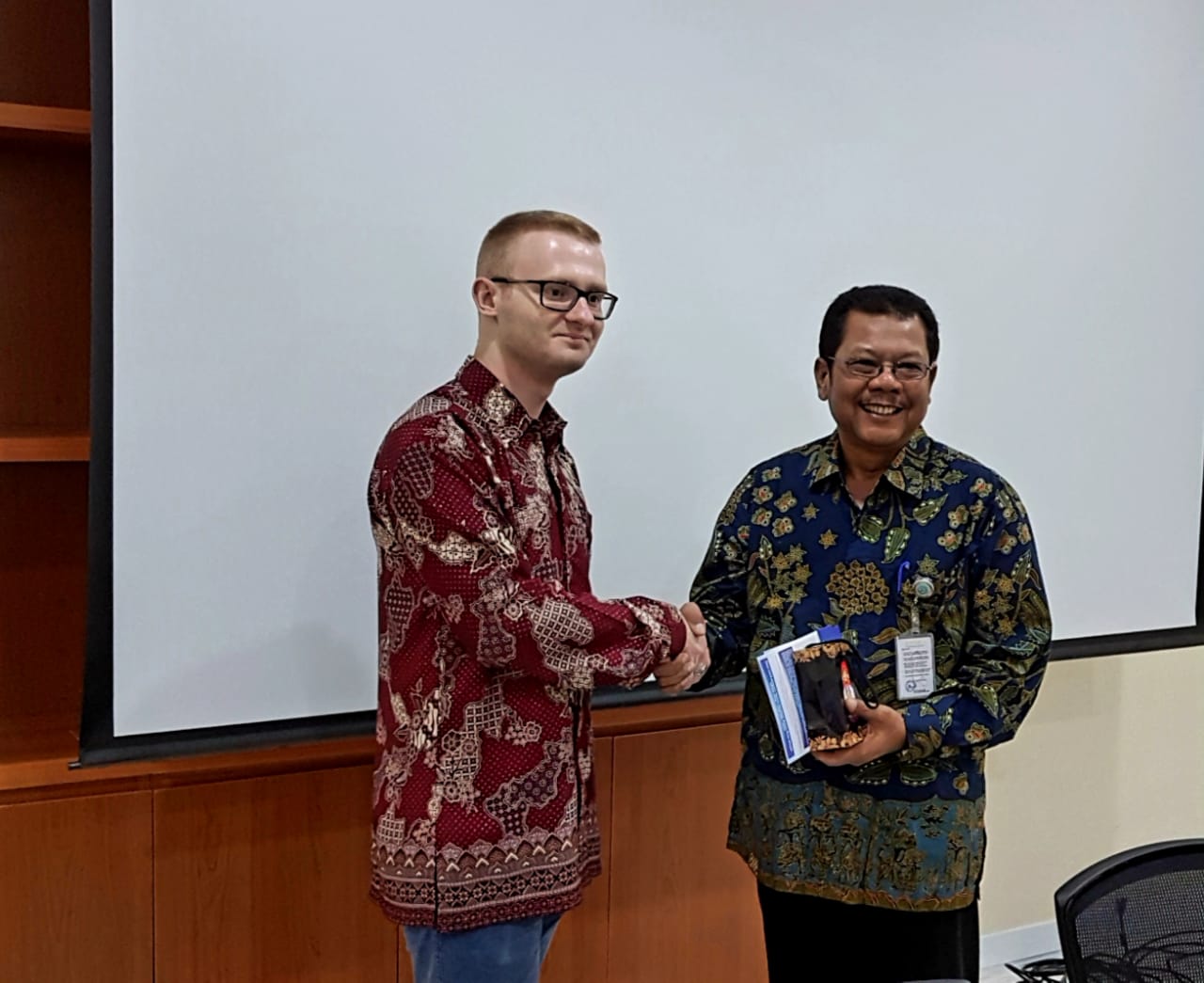
On social networks, are you leading a group about Indonesia? Is this your personal initiative? What for?
Now there are a lot of popular science, historical public about different countries, which are experts - Latin Americanists, for example. Such directions are traditionally popular in Russian society. Indonesia is still little known.
My initiative is to share relevant relevant information about various aspects of the history, culture, foreign and domestic policy, public life of Indonesia. In addition, foreign students who come here to study see that their country is known and respected.
Another task of the group is to consolidate the expert community of orientalists. There are good specialists studying Indonesia, they need to be gathered on one site. Why do this? The answer is simple: to form an audience with a wide interdisciplinary understanding of the country and society, and not just about how to relax in Bali.
Let's talk about practice, internships and work. Is it difficult for a student to find a job? What you need to know and be able to, for example, as a 2nd year student get a place in a serious organization?
Work in serious organizations begins with the fact that you can perform a wide range of functions. At the same time, you do it quickly, efficiently and you are stress-resistant. I think this is a standard set of soft skills needed to work anywhere. From government to business - everywhere now there is a high level of responsibility and the dynamics of work processes.
I did my internship at the Ministry of Foreign Affairs of the Russian Federation in the Department for New Challenges and Threats, which deals with the problems of terrorism, piracy, the fight against drug trafficking, and cybercrime. For me, it was very interesting experience in dealing with real diplomats, who are also engaged in such a specific area, requiring constant field analytics and a prompt response.
Prior to that, with the assistance of RUDN University, I had a practice at the Ministry of Education and Science of the Russian Federation, where I worked with documents for the admission of foreign students. Such interaction with educational policy showed from the inside how the international educational process of approving and accepting candidates works, how many foreigners seek education in Russia.
I also worked with structures that export Russian education - Russia.Study, Federal Agency Rossotrudnichestvo. In the fall I was on a business trip to Jakarta and I can say that the Russian direction is very popular there - about 400 schoolchildren are already learning Russian and speaking it.
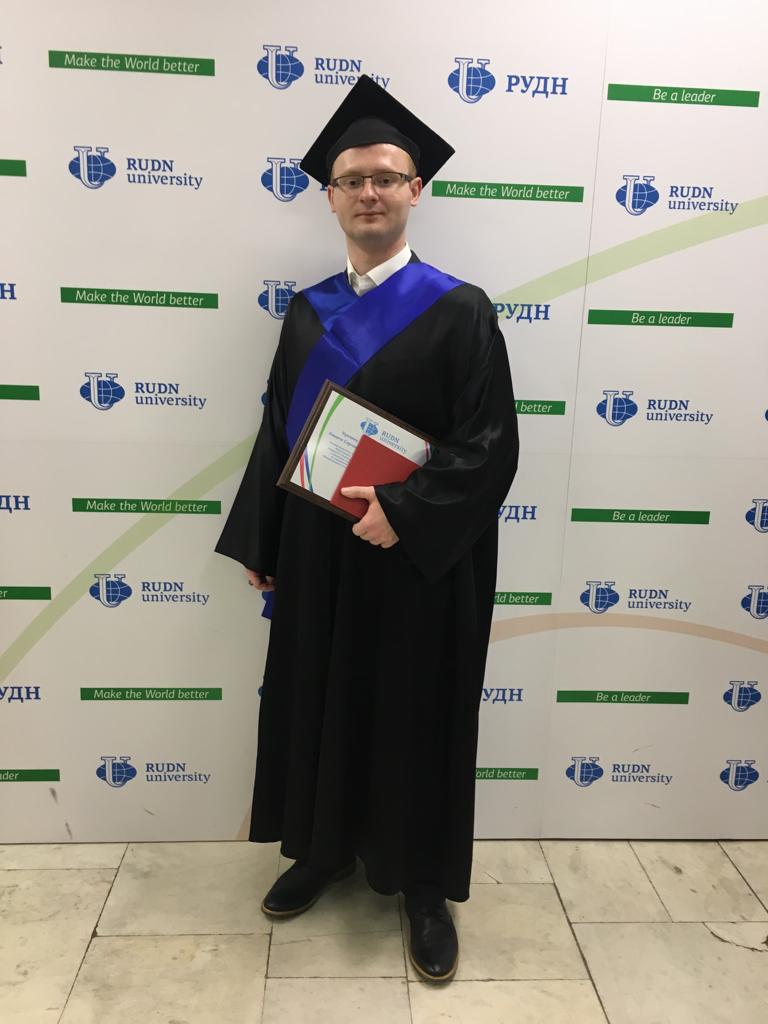 Where would you like to work in the future? Which direction to develop? What is your area of interest?
Where would you like to work in the future? Which direction to develop? What is your area of interest?
I am interested in both practical diplomatic activity and teaching. Ideally, combine these areas and act as an international scientist - write articles, speak with an expert opinion, attend conferences, teach. Of course, I would like to develop the direction of Southeast Asia.
You are an activist, a young scientist, a student, an employee, you probably still have friends, hobbies ... How to put all this into 24 hours?
Time management saves me. Like many, I sometimes put things off until the deadline. It's not always the same. But when I understand that there are many things, they are important and the deadlines are strictly defined, I turn on something like the Japanese kaizen system, which consists in clear timing. My personal kaizen is a timer or an alarm. For example, I sit down for an article, set an alarm, and I have an hour to write it, without being distracted by extraneous activities. Then it’s important to switch activities - for example, to wash the dishes. I start the alarm again. If I get free ahead of time, I can rest. Then I start the alarm again and do the article for the next hour. The methodology is that the restriction stimulates to do at least something, and even if this is insignificant progress, it is still better than not doing anything. Then you can improve the result.
3 words about RUDN.
Friendship. RUDN University gave me good friends - that support group, without which it is very difficult to advance through life. I know that if I come to any country in the world, I have my own people there!
The second is academic freedom, which is very important for research.
And of course, an interesting life. At RUDN I did not miss a day.
Interviewed by Alexandra Martynenko
